-
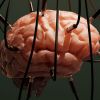 +21 +2
+21 +2Scientists Now Want to Create AI Using Real Human Brain Cells
Machine-learning models like the one that powers ChatGPT are generating essays, short stories, and entire podcasts. But scientists are looking into another way of computing that could be just as efficient and powerful, and it’s in our brains.
-
 +25 +4
+25 +4Tech Companies Are Getting Into Neuroscience. Should We Worry?
The past few decades of neuroscience research have produced a wide array of technologies capable of measuring human brain activity. Functional magnetic resonance imaging, implanted electrode systems, and electroencephalograms, or EEGs, among other techniques, have helped researchers better understand how our brains respond to and control our bodies’ interactions with the world around us.
-
 +4 +1
+4 +1Exercising in nature produces psychological benefits and measurable changes in brain activity
An experimental study found that exercising in the presence of nature — even virtual nature — offers psychological benefits compared to exercising without. The study, published in the International Journal of Psychophysiology, further pinpointed areas of the brain that may be responsible for these effects.
-
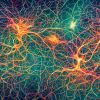 +19 +2
+19 +2Study Suggests Fructose Could Drive Alzheimer's Disease
An ancient human foraging instinct, fueled by fructose, may hold clues to the development of Alzheimer’s disease, according to researchers.
-
 +22 +4
+22 +4A neuroscientist shares the 4 ‘highly coveted’ skills that set introverts apart: ‘Their brains work differently’
Being the most talkative person in the room may be a good way to get people’s attention, but it doesn’t necessarily mean you have the best ideas. As a neuroscientist, I’ve worked with large companies like Google and Deloitte on how to attract and retain top talent, and I’ve found that employers tend to favor extroverts.
-
 +17 +1
+17 +1Goodbye coffee, hello brain stimulation? People are zapping their brains at home to clear brain fog
At-home brain stimulation is flourishing among a group of enthusiasts, who say it gives them a mental edge. The science behind why it may work is still in the early stages.
-
 +12 +1
+12 +1The Persistent Problem of Consciousness
This is the first in a series of essays on consciousness & how it is fundamental to our understanding of reality. Make no mistake, reality is strange. Consciousness research, although in its infancy, is attempting to make sense of it. Something so fundamental can hopefully put the whole calamitous shit show into some kind of graspable order. So, consider this part 1.
-
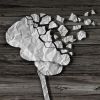 +3 +1
+3 +1Concussions may be associated with worse brain function at later age: study
Experiencing three or more traumatic brain injuries was linked with lower cognitive function later in life.
-
 +24 +7
+24 +7What causes your brain to procrastinate and how to face it
A study shows that two actions may help in tackling procrastination — setting reminders and envisioning your future self.
-
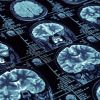 +15 +3
+15 +3Brain imaging study links socioeconomic disparities in children's sleep to reduced cortical thickness
A new study has found that children from disadvantaged families tend to sleep less, and that this lack of sleep is linked to reduced cortical thickness in areas related to language, self-control, and movement. Cortical thickness refers to the measurement of the thickness of the cerebral cortex, the outermost layer of the brain. It is often used as an indicator of brain development and maturation, and can be measured using imaging techniques such as magnetic resonance imaging (MRI).
-
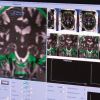 +12 +3
+12 +3A sound you can't hear but may one day change your life
Neurosurgeons are using focused ultrasound, a noninvasive brain surgery, to treat essential tremor and other conditions. Here's how it works.
-
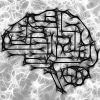 +13 +1
+13 +1A Link Between Schizophrenia and Vascular Alterations in the Brain
A new study uncovers a link between astrocytes derived from patients with schizophrenia and the formation of narrower blood vessels in the brain. Findings suggest the astrocytes from those with schizophrenia promote less vascularization.
-
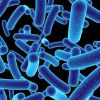 +26 +3
+26 +3Study uncovers a strong link between gut bacteria and development of Parkinson’s disease
Parkinson's disease may start in the gut and spread to the brain, a new study from the University of Surrey suggests.
-
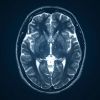 +4 +1
+4 +1Inside the mind of a 6-year-old shooter
Police say a 6-year-old in Virginia shot his elementary-school teacher intentionally. But scientists say that's not how kids' brains are wired.
-
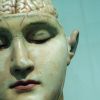 +17 +1
+17 +1Programming and its positive impacts on brain functioning
Learning to program can accelerate knowledge acquisition by developing cognitive skills. As a result, we remember the information much better, and the brain subjected to constant exercise is much healthier.
-
 +16 +4
+16 +4Will This Device Protect Athletes’ Brains, or Only Make Them Think It Does?
More and more pro and college athletes are trying on the Q-Collar as they search for something, anything, that might keep their brains safe. But does it work?
-
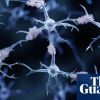 +27 +1
+27 +1Scientists develop blood test for Alzheimer’s disease
Scientists say test could replace a costly brain scan or painful lumbar puncture and enable earlier detection of disease
-
 +14 +4
+14 +4Psychedelic drugs may launch a new era in psychiatric treatment, brain scientists say
One of the hottest tickets at this year's Society for Neuroscience meeting in San Diego was a session on psychedelic drugs. About 1,000 brain scientists squeezed into an auditorium at the San Diego Convention Center for the symposium, called Psychedelics and Neural Plasticity.
-
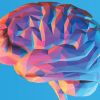 +20 +3
+20 +3Researchers explore the relationship between childhood trauma, gray matter, and social anhedonia
A new study published in Brain Imaging and Behavior searches for the potential relationship between childhood trauma, social anhedonia, and brain gray matter volume. The research found individuals with moderate to severe childhood trauma experienced higher levels of social anhedonia and exhibited differences in gray matter.
-
 +22 +2
+22 +2Want to start your own company? You might have a brain parasite.
A new study of alpha leaders underscores a strange link between entrepreneurship and an infection caused by cat poop
Submit a link
Start a discussion




















